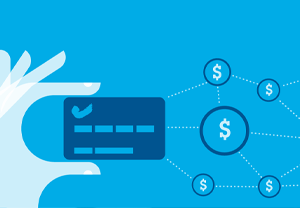‘Tis the season to create your New Year’s Resolution. If you’re still deciding on what goals you think you should set for 2016, think about improving your financial wellness.
Maybe you’ve cut up your credit cards and swore off using them again or you decided to make a commitment to improve your credit score. To accomplish any of these things you need to create a financial plan to help you succeed.
Here’s five things you can do to improve your financial wellness.
1. Check your credit report
When was the last time you looked at your credit report? Not being cognizant of what your credit score is or what’s on your report could end up costing you money. There could be a bill that you forgot to pay or perhaps someone has stolen your identity and has run up major debt.
You can request a copy of your credit report for free from annualcreditreport.com once per year. Take a look at it and see if there’s anything unpaid bills that you’ve overlooked. If you see any suspicious activity contact the credit bureau immediately.
2. Create a Budget
The problem with not having a budget is you have no idea where your money is going. Three out of four Americans make impulse purchases. These purchases add up and can wreck havoc on your budget.
To create a budget you’ll need to know what your monthly expenses are and what your monthly income is. We also recommend that you look at your checking statement and add up other expenses such as entertainment and going out to eat. Subtract all of your expenses from your income. Are there any areas where you can cut back?
You can keep track of your budget using a simple excel document or using one from Dave Ramsey. Additionally, there are apps for your smartphone or tablet that you can use such as Mint, Wally, and Billguard. Communication Federal Credit Union will launch a new personal financial management system integrated with online banking in the first quarter of 2016.
3. Plan for Retirement
Being financially secure in the short-term is important, but it’s equally important to have a plan for the long-term as well. In 2016, start saving for retirement. How much you should save depends on your age, how much is already saved and how much you believe you’ll need to live on once you retire.
If your employer offers to match a certain percentage of your contributions, make sure to take advantage of it. Try to at least contribute 6% of your paycheck. If you are already contributing to your retirement, consider upping the percentage that you are putting back by 1 or 2 percent. If you receive an annual raise, that’s also a good time to increase your 401K contribution. You won’t miss the money if you make your contribution increase at the same time as your pay increase. This can add up significantly over the long-term.
4. Eat Out less
In 2016, make it your goal to eat at home more. Not only will this save you money, it can also make you healthier. Maybe you currently go out to eat twice a week, cut back and only go out to eat once a week. Take a sack lunch to work instead of grabbing something on the go.
Take the money you are saving and apply it to your debt, save more for retirement, or create an emergency savings account.
5. Prepare for Emergencies
At some point in your life, you’ve most likely had something happen that has caused financial stress. If you haven’t already, open an emergency savings account at CFCU and start saving for these unexpected expenses. It’s easy to set up an automatic transfer of a few dollars to your savings account each month using CFCU’s online banking system.
Many experts recommend having enough savings to cover three to six months worth of expenses. If you can’t afford to save that much right away start small and save at least $1,000. This will cover some car repairs or home repairs. If you use any of your emergency savings, make sure to replenish it as soon as possible.
Conclusion:
Still feeling overwhelmed? Contact Communication Federal Credit Union about your financial needs and let us help you reach your goals.




